Note: This is a compilation of Frontier Friday, a weekly Substack published, originally released on 21 Oct. 2022
PART I
Writing about existence is like writing about writing.
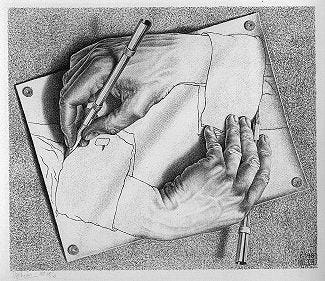
This particular series is not exclusive to what we call existential therapy, although it most certainly includes the field of existentialism.
Personally, no matter your area of speciality or types of clients you work with, you cannot escape the inescapable topics that revolves around
- Meaning
- Purpose
- Spirituality
- Happiness
- The good life
As you can see, this topic about how to live, is BIG.
So let’s start small.
Here’s the first five recommendations.
- 🎹 A Song: If We Were Vampires
This is not about Vampire Diaries.
Jason Isbell and his crew, The 400 Unit has a deeply moving song.
Taken from their album The Nashville Sound, this song paints a picture that is worthy of a thought experiment. What if death was a joke, and we could live forever?1Listen to this song. And if you are on Spotify, follow the lyrics.
- 🎧 Listen: Do You Want To Become A Vampire?
On that note about vampires, let’s play with this thought experiment:
Let’s say Dracula offers you the chance to become a vampire. You might be confident you’ll love it, but you also know you’ll become a different person with different preferences.
Whose preferences do you prioritize: yours now, or yours after becoming a vampire?
Philosopher and cognitive scientist L.A. Paul raises this interesting question, which leads to a wide-ranging implications e.g., choices, parenting, technology, who we become, etc.In general, I love this podcast series by Centre for Humane Technology. Specially, this episode is a treat to help you think clearly. - 👀 Web-Read: Hikikomori
I’ve mentioned this in FF12. Hikikomori is a phenomena describing young men in urban cities like Japan, UK, Brazil, and US who withdraw from society. For more, see this BPS article.
And watch what these Japanese “Rent-a-Sister” were doing to coax these men out of their bedrooms. - 👀 Web-Read: The Lying Flat Movement
Tang ping (Chinese: 躺平)
What is the lying flat movement? It is so worrying that the China government banned and censored any discussion about this topic.
Here’s from a CNN article:
“The phrase apparently traces its origins to a post in an online forum run by the Chinese search giant Baidu. The author of that now-deleted post suggested that instead of working one’s entire life chasing after an apartment and traditional family values, people should pursue a simple life.”“In South Korea, young people are giving up on marriage and home ownership. In Japan, they are so pessimistic about the country’s future that they are eschewing material possessions.” ” Young people are very burnt out,” said Lim Woon-taek, a professor of sociology at Keimyung University in South Korea. “They don’t know why they have to work so hard.”
Watch this related video talking about the Extreme 996 work culture i.e., start work at 9am, leave at 9pm, 6 days a week.
This is a sign of our times. The young are questioning,
“Is this really a way to lead my life?”
It is a really good question.
Take heed. - ⏸ Words Worth Contemplating:
If we were vampires and death was a joke
We’d go out on the sidewalk and smoke
And laugh at all the lovers and their plans
I wouldn’t feel the need to hold your hand
Maybe time running out is a gift
I’ll work hard ’til the end of my shift
And give you every second I can find
And hope it isn’t me who’s left behind.
~ Jason Isbell and 400 Unit, If We Were Vampires
Reflection:
What if time running out is a gift?
PART II
- 📽 Watch: About Time
Have you ever experience no recollection of a movie you’ve watched before?
…And this was a really good one!
This movie came back into my radar from filmmaker Nathaniel Drew’s newsletter. I got intrigued. Found out it was on Netflix, and watched it last night.
As the show was kicking in, I search my personalised learning system (PLS)1 notes app… and only to realised I had watched this with my wife 3 years ago!
This is not your typical romantic comedy. It’s not just about romantic love. To me, it’s about the preciousness of time and relationships.
Highly recommended. - 📽 Watch: Pixel’s Soul
I’ve shared this on FF70.
This is one of my favorite Pixar animation (available in DisneyPlus)
The theme wrestles with the question of life’s purpose. It is so well crafted.
Potential Spoiler: Finding “life’s purpose” can potentially be a trap.
The soundtrack is also spectacular (surprisingly, Trent Reznor from Nine Inch Nails composed the soundtrack). For more about the movie, see this 8 min youtube video.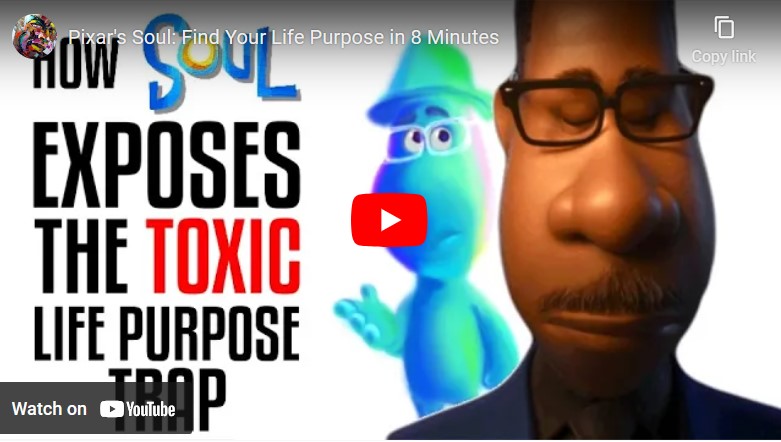
- 📕 Read: Standpoints
Somehow, I’ve never delved deep into the roots of philosophy. Yet, at its core, philosophy strives to address what it means to lead a good life.
Danish Psychologist and Philosopher Sven Brinkmann does a marvellous job in this book, Standpoints.
He distils the greats into its essence. Even though I’m familiar with some of the schools of thought (Kant, Aristotle), reading his synthesis juxtapose with other philosopher is throws new light.
I particularly appreciate his emphasis from Kantian’s view on means vs ends.
In the prologue, The Meaningful Life, Brinkmann highilghts the issues with instrumentalisation.
“Art, play, love, and ethics are at their most useful when they are useless— that is, when they do not serve any purpose, when they are end in themselves… it is the supposedly useless phenomena that give life content and meaning.”
Here’s another cutting passage from his book:
“Psychology has transformed the religious goal of salvation into self-realisation; confession and pastoral care have become therapy and coaching; the modern secular priesthood consists of psychologists and self-help gurus; and God’s place at the centre of the cosmos has been usurped by the self. This has happened over the last couple of centuries. However, unlike the religious idea of the divine and the absolute as ends in themselves, psychology – to put it somewhat simply – offers means without ends. ”
I’d talk about his previous book, Standfirm in another series. I wished I had knew about Brinkmann’s work earlier. I’m likely to keep returning to Standpoints. - 🎧 Listen: Alan Watts
Maybe it’s his English accent, but everything he says seem to have a weight of importance!
There is an entire transcript of this talk, but I recommend listening.
Key Graf:
Bad music always expresses something other than itself…Good music never
talks about anything other than the music.
Good music, never refers to anything but the
music itself.Iif you ask Bach, what is your meaning?
He said “Listen”
“That’s the meaning”
Giraffes are giraffe-ing
Trees are tree-ing
Stars are star-ing
Clouds are cloud-ing
Rain is rain-ing
and if vou don’t understand look at it again
See related Frontiers article: Explainoholic - ⏸ Words Worth Contemplating:
”Don’t ask yourself what the world needs. Ask yourself what makes you come alive, and go do that, because what the world needs is people who have come alive.”
~Howard Thurman, The Living Wisdom of Howard Thurman: A Visionary for Our Time
Reflection:
What makes you come alive?
For more on this, read this short reflection, Do Not Find Meaning in Life.
PART III
1. 📕 Read: Second Mountain
I first learned about journalist David Brook’s work from his previous book, Road to Character.
Here’s a snippet from his book regarding the quest for a moral life, challenging the extreme notions of individualism:
“If the first mountain is about buidling up the ego and defining the self, the secon mountain is about shedding the ego and losing the self. If the first mountain is about acqusition, the second motunain is about contribution. If the first moutain is elitist—moving up—the second mountain is egalitatrian—planting yourself amid those who need, and walking arm in arm with them.”
Brook goes on to address the four commitments that define a virtuous and meaningful life: to relationships, to a vocation, to a philosophy or faith, and to a community. I love what he says about Freedom:
“Political freedom is great. But personal, social, and emotional freedom—when it becomes the ultimate end—absolutely sucks. It leads to a random, busy life with no discernable direction, no firm foundation… It turns out that freedom isn’t an ocean you want to spend your life in. Freedom is a river you want to get across so you can plant yourself on the other side—and fully commit to something.”
2. 📕 Read: Falling Upward
Richard Rohr is probably one of my favorite living authors. A Francisian Friar who strikes me as conservative with his values, but liberal with the process, his words are often resonant.
Falling Upward is not just a book about second half of life. it is a book of pointing at paradoxes.
“Homes are not meant to be lived in— but only to be moved out from.”
“The way up is down.
Building on Jung’s original idea on two halfs of life, Rohr says,
“…there are at least two major tasks to human life. The first task is to build a strong “container” or identity; the second is to find contents that the container was meant to hold.”
Here’s an important point about Falling Upward:
‘We are a “first-half-of-life” culture, largely concerend about surviving successfully.’ ”…But it task us much longer to discover “the task within the task…””
Elsewhere, Rohr cites Bill Plotkin,
‘Many of us learn to do our survival dance,” but we never get to our actual “sacred dance.””
It is a breath of fresh air to hear him self-examine the dogmas in his embedded his faith practices:
‘We clergy have gotten ourselves into the job of “sin management” instead of sin transformation…. I do not think you should get rid of your sin until you learned what it has to teach you.”
3. 🎧 Listen: Father Wounds, Male Spirituality, and the Journey to the Second Half of Life
This is an interview with Richard Rohr.
This podcast episode is particularly relevent if you work with young men.
He might be a Franciscan Friar, but his framework is not limited to the constrains of religious perspectives. In fact, I would argue that his voice is one that is much needed in our times.
4. 🤖 Lo-Tech, Hi-Value Idea: Install a Countdown Timer
Here’s a suggestion: Install a single countdown timer on your device.
Each year, I try to condense what’ve learned into an annual post. Here’s what I wrote on one of my reflections in “Looking Back at 2020” (FPD), Perspective of Time.
”Kevin Kelly is a sort of unlikely intellectual hero for me. I first came across his work in his book, The Inevitable, which cover grounds on innovations in technology. He wrote a blog called My Life Countdown that got me to think about this idea on changing my perspective of time.
In gist, I installed an app that did only single thing: It’s a countdown timer.
My sole purpose is to countdown one event. The day I die.
Here is a screenshot of an app that he recommended to download that sent a livewire down my spine:
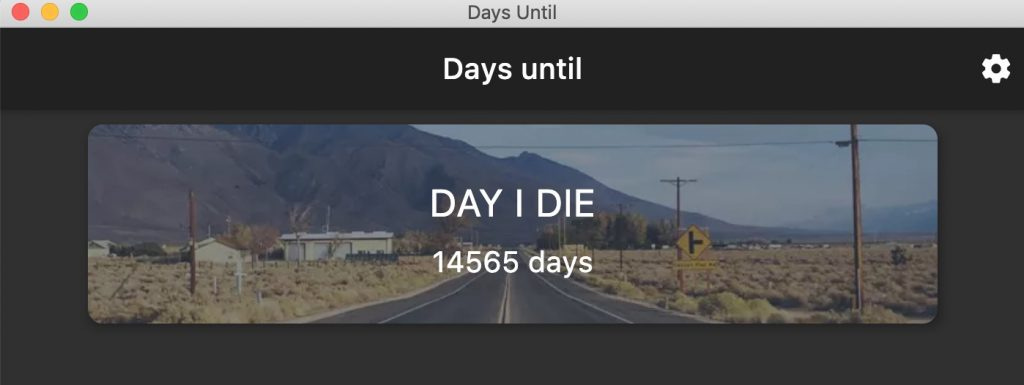
Note: pick a free app that works as a countdown timer. I install Days Until app for Mac. Set it to count only this one variable: The day you die.
Based on a simple Web search, and being an Asian male who doesn’t have significant bad habits or heath issues, I estimated how long I might live (about 81.4 years), and then key in the rough date… viola! The day I die.
What was striking was how little amount of days I mighty likely have (14,000+). At age 42, for some unexamined reasons, I assumed I would have abit more days than that!”
Update: The screenshot above was made on 17 Jan 2021. Below is the screenshot made on 3 Nov 2022.
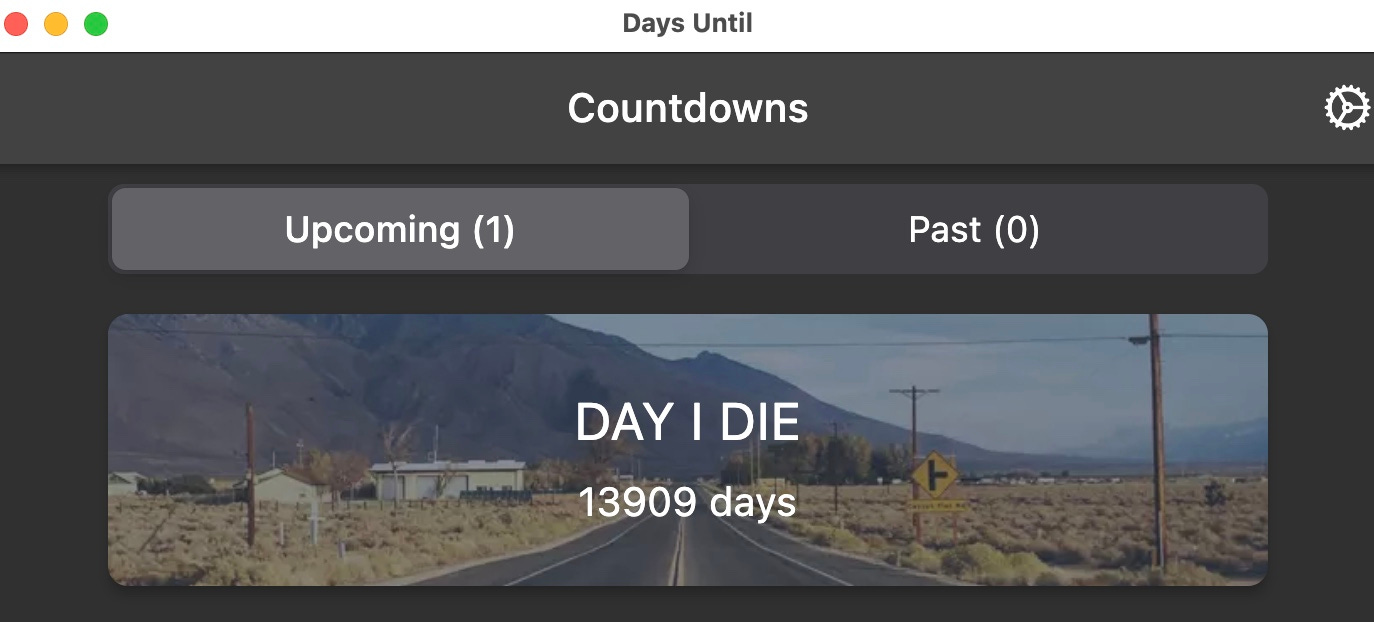
This completely heighten my sense of wakefulness about my mortality. It sharpened some kind of clarity in a visceral way… It’s been more than a year of starring at this, and it has sharpened my sight.
We all know that we are all gonna die (and I may have less than 13,909 days left, who knows), but having the estimates of the literal number of days left, completely added perspective.
I told some people about what I did with this countdown timer. One said “that sounds a bit morbid.” A youth I was working with said, “That sounds like alot of time left.” Talk about perspective… but most had the same reaction: “Wow…”
Most of the exclamations were really about the implications for themselves.
Money is not the only thing that you can count.
5. ⏸ Words Worth Contemplating:
One cannot live the afternoon of life according to the program of life’s morning; for what was great in the morning will be of little importance in the evening, and what in the morning was true will at evening become a lie.
~ Carl G. Jung
Reflection:
Where are you in your life?
What kind of mountain are you climbing?
Where are you going?
Why?
PART IV
1. 📕 Read: Tuesdays With Morrie
This was one of the first few “self-help” type of books that I read.
I was introduced to the stories about Morrie Swartz by a mentor who was instrumental to my development when I first started working as a youth worker. In essence, this book is about a student reconnecting with his favorite sociology professor, who is ill with ALS. They began a project of meeting each other each week, on a Tuesday. Mitch Albom began recording these sessions; this is how the book is born.
This book was made into a movie by Oprah Winfrey’s productions. I think I watched this more than 3 times, even though I’ve revisted the book several times in my 20’s and 30’s. (I did a quick search. The whole film is on Youtube. And if you want to hear a short talk by Mitch Albom, the author of the book, here’s one).
“If you hold back on the emotions–if you don’t allow yourself to go all the way through them–you can never get to being detached, you’re too busy being afraid. You’re afraid of the pain, you’re afraid of the grief. You’re afraid of the vulnerability that loving entails. But by throwing yourself into these emotions, by allowing yourself to dive in, all the way, over your heard even, you experience them fully and completely.”
And one that I’ve kept close to me the last 2 decades:
Death ends a life, but not a relationship.
~ Morrie Swartz
2. 📽 Watch: Viktor Frankl: Self-Actualization is Not the Goal
I suspect many of you would know the book, Man’s Search for Meaning. It is essential reading.
Frankl is an Austrian psychiatrist who survived 3 years in Nazi concentrations camps. Surviving through and witnessin the burtality, losing his mother, father and wife, he developed an approach to psychotherapy called Logotherapy.
His core tenet is the belief that a person’s primary motivational force is the search for meaning.
Man’s Search for Meaning was initially published as an anonymous author. In 1991, Man’s Search for Meaning was listed as “one of the ten most influential books in the U.S.” by the Library of Congress.
He cautioned about the trend he saw in modern psychotherapy with its tendency to reduce an individual to nothing more than a victim of influences of nature or nurture. This, he felt, stripped people from any freedom of choice or responsibility.
In the second-half of his landmark book, Frankl expounds on his approach of logotherapy. According to Frankl, there are 3 main avenues at how one arrives at meaning in life.
i. Creating a work or by doing a deed;
ii. Meaning can be found not only in work but also in love;
iii. Facing a fate he cannot change, rising above himself, and by so doing, change himself. In Frankl’s words, “Turn a personal tragedy into a triumph. ” (p.170).
In one of his final television interviews, Frankl talks about logotherapy, as well as why self-actualisation is not the goal.
“…preaching self-actualization… it’s nonsense.
Self-actualization can only fall into your lap automatically once you have fulfilled a concrete meaning, done the best of a situation, then you actualize yourself as a by-product.”
An aside: Abraham Maslow never drew that pyramid of the hierarchy of needs that we know so well. It was created by a management consulting firm in the sixties (Read this article). Maslow would actually point towards self-transcendence, not self-actualisation.
I’ve not seen this yet, but there’s a film made by Alexander Vesely (who also made a film about Milton Ericsson), call Viktor and I- The Life and Work of Viktor Frankl. (for rent on Vimeo).
3. 🎧 Listen: Journeying From the First to the Second Half of Life
Great interview with Jungian analyst James Hollis.
This conversation explores the differences between the first and second halves of life (more on this in FF112, and how the main question of the first is “What is the world asking of me?” while the primary question of the second is “What is my soul asking of me?”
4. 🎥 Watch: Tender Bar
I’m reminded by Mary Karr’s words:
“A dysfunctional family is any family with more than one person in it.”
Based on a novelist’s memoir, this coming-of-age movie directed by George Clooney (and starring Ben Affleck) is a worth watching.
This story points to something that the resilience literature have highlighted: The importance of having a significant, caring figure in your life.
In this story, you’d learn how a boy’s grows up in a bar, guided by his Uncle who becomes a father-figure to him. Available on Prime.
5. ⏸ Words Worth Contemplating:
“When we are no longer able to change a situation, we are challenged to change ourselves.”
~ Viktor Frankl
Reflection:
Given the current season of your life, what does life asks out of you?
What needs to change?
What needs to continue?
Perhaps more importantly, what needs to be let go of?
PART V
- 📕 Read: The Sweet Spot
I’m drawn to Paul Bloom’s writings, as he’s has a sort of contrarian mind (I mean, his previous book was called Against Empathy).
In The Sweet Spot, Bloom makes the case how suffering is an essential source of both pleasure and meaning in our lives.
Here’s some interesting snippets:
On the dark side of flow states:
“Viewed through the experiential lens of flow, a good life is one that is characterized by complete absorption in what one does” (italics theirs). But this is actually a poor answer to the question of what constitutes a good life.
Flow can be trivial. Crossword puzzles can be, for me and others, flow experiences, but a life of doing crossword puzzles would be a huge waste. And actually, as Csikszentmihalyi himself has discussed elsewhere, flow can be a lot worse than trivial. Adolf Eichmann, a key organizer of the Holocaust, has often been described as someone with no malice toward the Jews. He was an expert who sought to do a good job, and he took pride in mastering a complex and technically challenging task.
Csikszentmihalyi suggests that Eichmann “probably experienced flow as he shuffled the intricate schedules of trains, making certain that the scarce rolling stock was available where needed, and that the bodies were transported at the least expense. He never seemed to ask whether what he was asked to do was right or wrong. As long as he followed orders, his consciousness was in harmony.”
On morality:
“What about morality? Many meaningful pursuits are moral. To use a milder example, climbing Mount Everest is seen by many as worthwhile and important, but I doubt that even the climbers themselves would frame it as good.”
On suffering:
“You’ll notice that suffering is not one of the criteria here. But given that meaning involves the pursuit of significant and impactful goals, meaning will inevitably come with suffering—with difficulty and anxiety and conflict and perhaps much more. When one chooses to have a child or go to war or climb a mountain, one might not wish for or welcome suffering. But it always comes along for the ride.”
‘…Seneca put it, “Things that were hard to bear are sweet to remember.”’
This point echoes Viktor Frankl’s words ““In some ways suffering ceases to be suffering at the moment it finds a meaning.” (more on Frankl in previous FF113)
On parenting:
“…in the study by Baumeister and his colleagues on meaning and happiness… they found that the more time people spent taking care of children, the more meaningful their lives were—even though they reported that their lives were no happier.”
On the pursuit of meaning:
“American Freshman Survey, which found that in the late 1960s, 86 percent of respondents claimed that “developing a meaningful life philosophy” was “essential” or “very important,” while in the 2000s, the proportion dropped to 40 percent. She is disappointed in this; she sees it as a bad sign. I don’t. It might reflect a lack of interest in a meaningful life, and less engagement in one. But it could also be that the youth of today are less full of themselves. Maybe they put more energy into living and less into thinking about how they are living.
…The general point here is that you can achieve a meaningful life without knowing that you’re trying to achieve it or thinking about it at all.”
- 📕 Read: The Active Life by Parker Palmer
This is going down as one of my favourite books in 2021.
Readers of the Frontiers will notice that I gravitate towards Parker Palmer’s work.
In the Active Life, he takes evocative story from a variety of religious traditions, including Taoist, Jewish, and Christian, that can help people who are seeking deeper meaning and spirituality, especially for those who are knee-deep in the frenetic busyness of modern living.
There is a profound story that he cites from the Jewish philosopher, Martin Buber in Chapter 5, Where Angels Fear to Thread.
- 🎥 Watch: The Neigbors’ Window Short Film
This short-film hits home on a point that we need to be reminded about: Comparison is the root of suffering.
- 📜 From My Desk (Archive):
Do Not Find Meaning in LifeSome wise words that inspired MLK.
- ⏸ Words Worth Contemplating:
“Attention is the purest and rarest form of generosity.”
~ Simone Weil.
(Hat Tip to Tom O’Connor for pointing me to Simone Weil’s work.)
Reflection:
“If you focus on what you lack, you lose what you have. If you focus on what you have, you gain what you lack.” (Greg McKeown)
So where are you placing your attention today?
What and who do you need to notice, that may lead you to an involuntary gratitude of what you have?
PART VI
- 📕 New From My FullCircles Desk: Good Things Grow From…
Do you know this song? “Scrambles eggs, oh baby how I love your legs.”
Read this short post to figure out were good things grow from. - 📽 Watch: Stutz
This documentary is atypical and intimate.Actor Jonah Hill turns the camera to his therapist that he’s been seeing for years, psychiatrist Phil Stutz.
Although some of the naming of his strategies were derivative of other people’s work, I found it illuminating. I was also pleased to learn that Phil sketches out his ideas. (It’s funny how you feel validated when others do similar things).
Here’s an article on all of his strategies he mentioned in the documentary.
Here’s the paraphrase of the intro from Jonah Hill:
– When you see your friends, all they should do is listen, and not give you advice.
– When you see your therapist, they should be give you direction, but all they do is just listen.
Stutz is available on Netflix. - 📘 Read: The Art of the Good Life
I loved Rolf Dobelli’s first book, The Art of Thinking Clearly. In fact, the format of The First Kiss book was inspired by Rolf i.e., short chapters and providing linkages to other related chapters.
In the Art of the Good Life, Rolf provides 52 “shortcuts” that may lead you to a better life.
In chapter 25, The Circle of Dignity, he writes
“…Be prepared for one thing: you’d disappoint some people by defending your principles—especially people you care about.The circle of competence—that’s ten thousand hours. The circle of dignity—that ten thousand wounds.”
Reminds me of Groucho Marx:
“These are my principles. If you don’t like them—I have others.”
- 📽Watch: Nick Cave on Faith, Grief, and Music
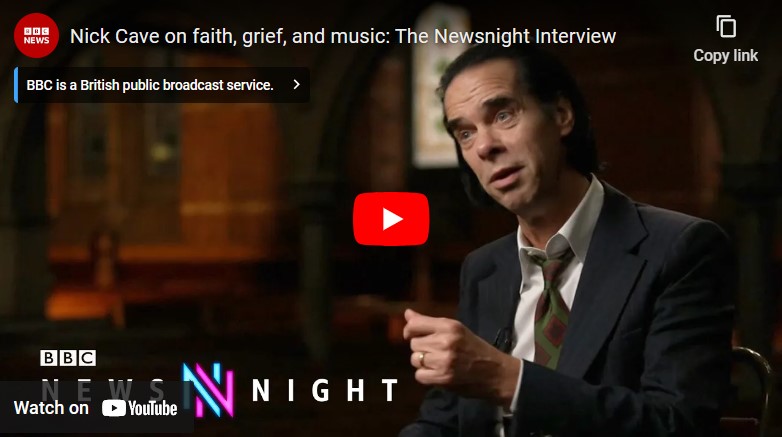
This was just released about a week ago on BBC.
Nick Cave talks about the death of his 15-year-old son, and his healing process in the making of the album Ghosteen (A really haunting album).
Susie, his wife said, “it take courage to be happy.” Nick replied, “I agree with everything my wife says.” - ⏸ Words Worth Contemplating:
“Happiness is an act of defiance.”~ Nick Cave.
Reflection:
Happiness, is an act of defiance.
Think of all the faces who embody this defiance to be happy, against all odds.
Here’s one that immediately calls to mind:
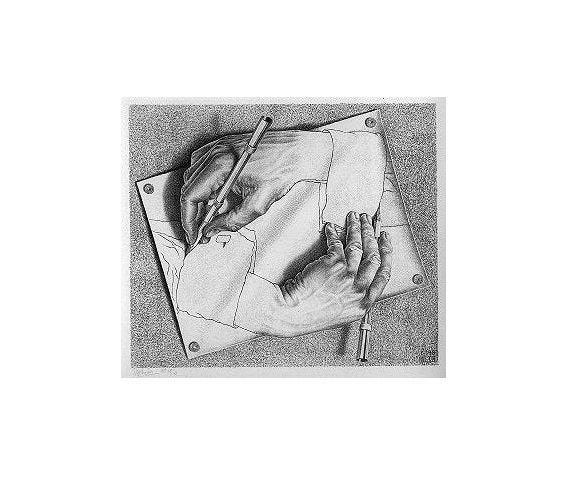
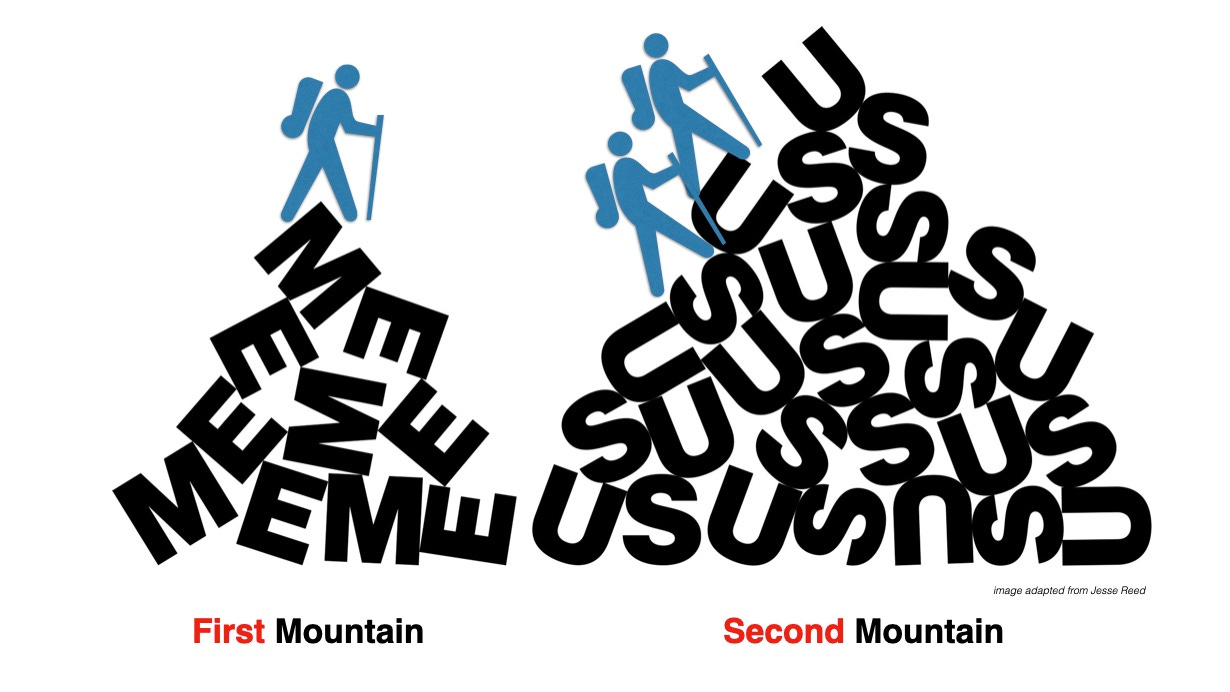
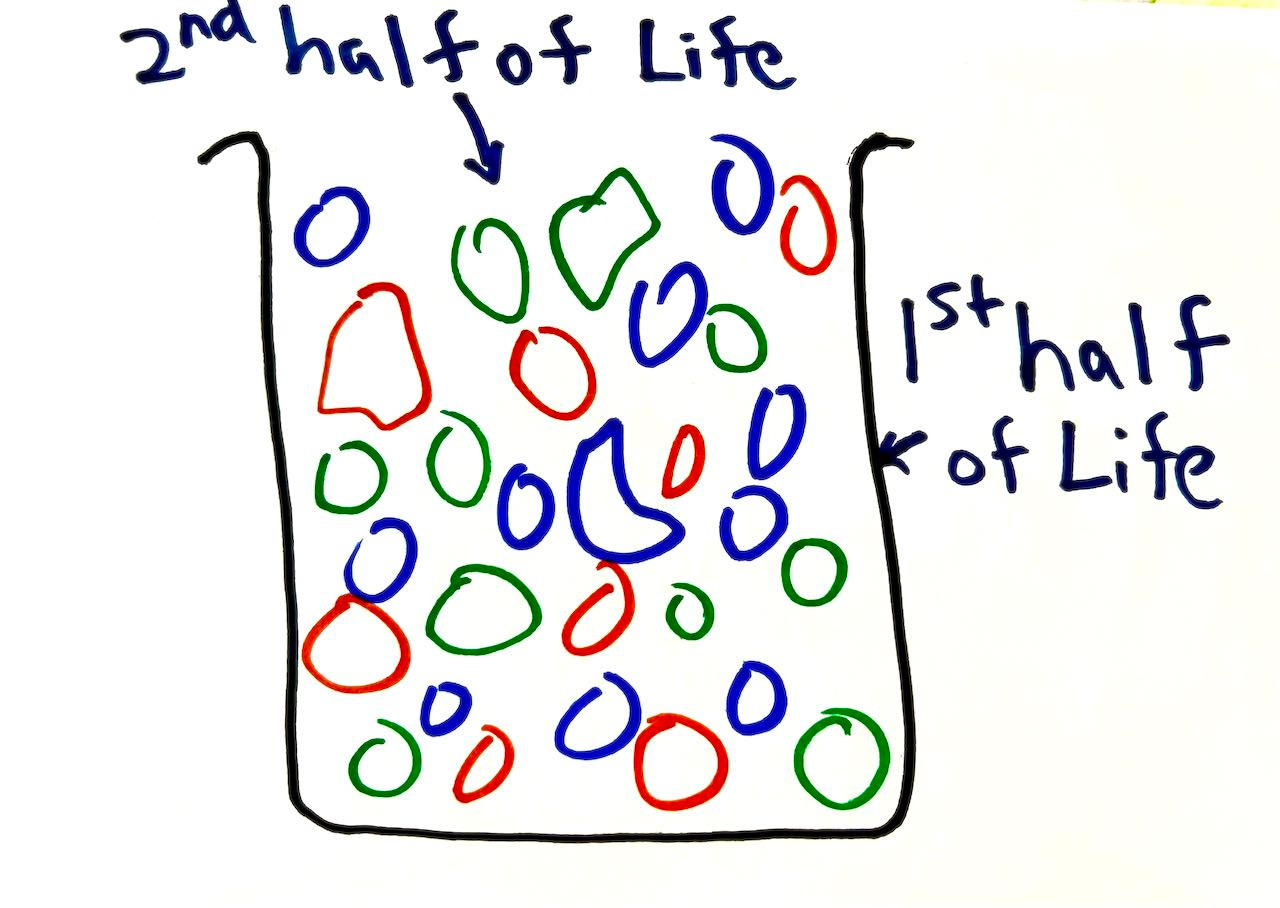

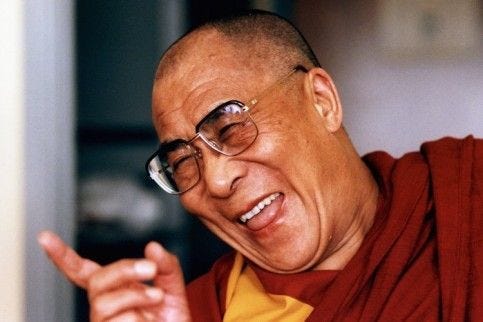


Recent Comments